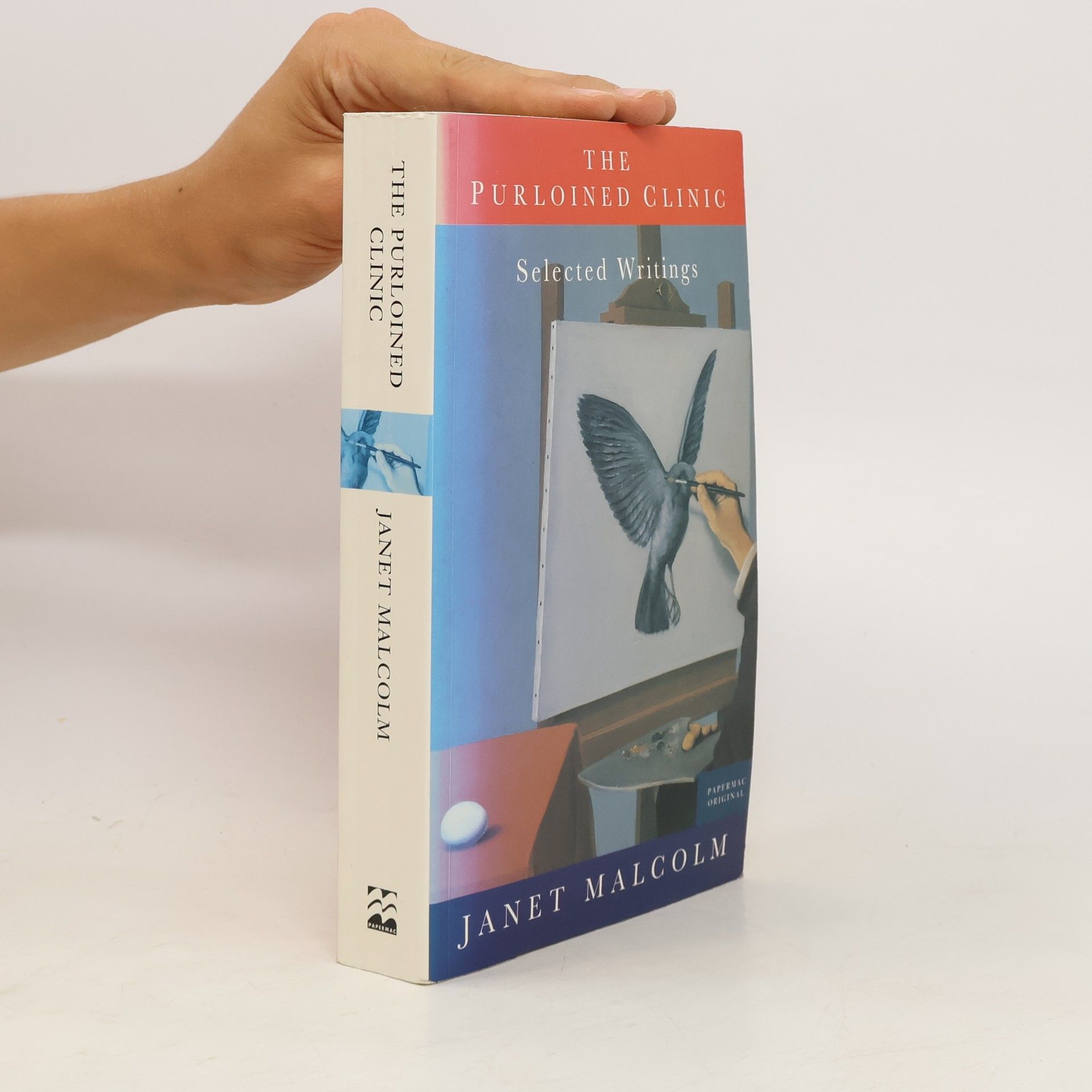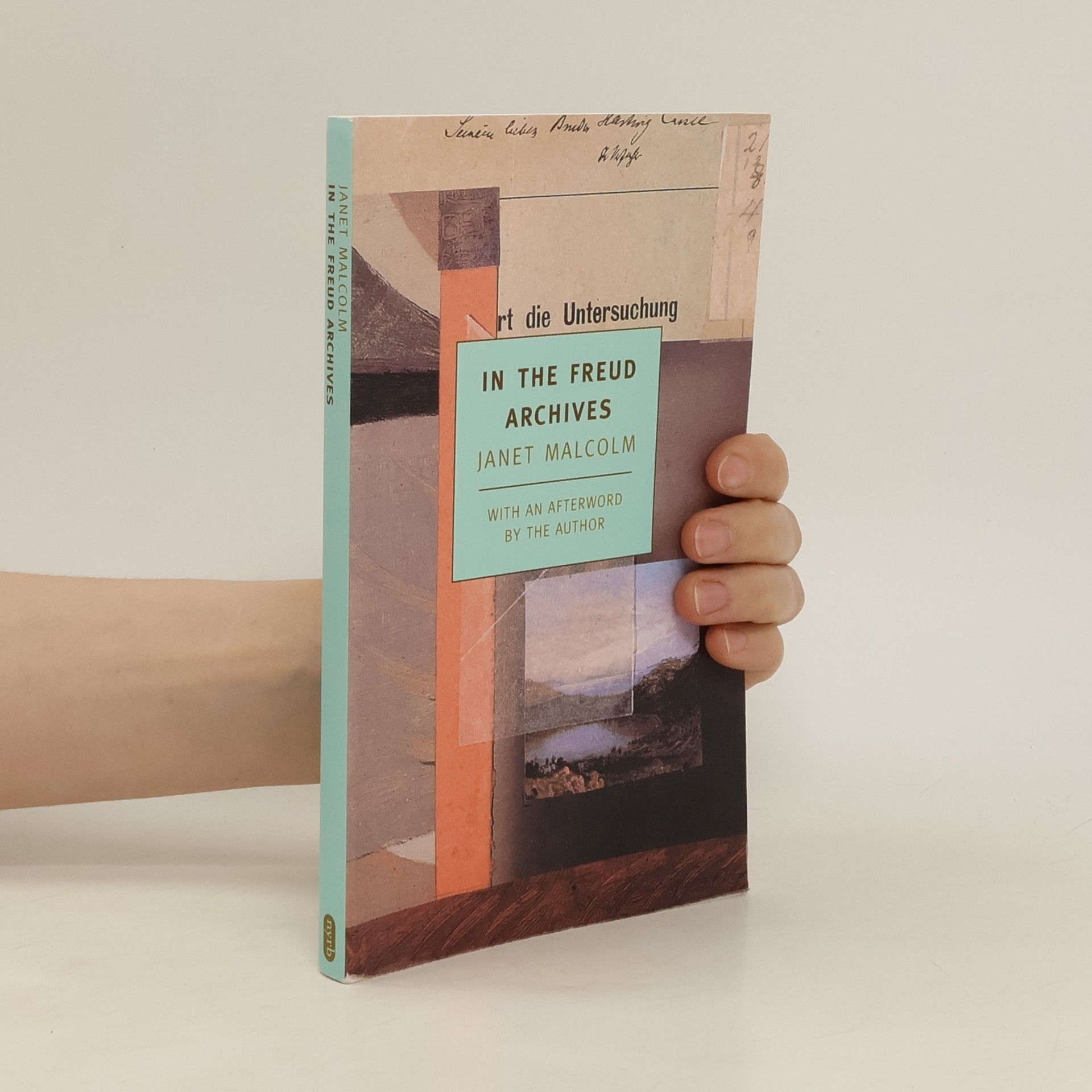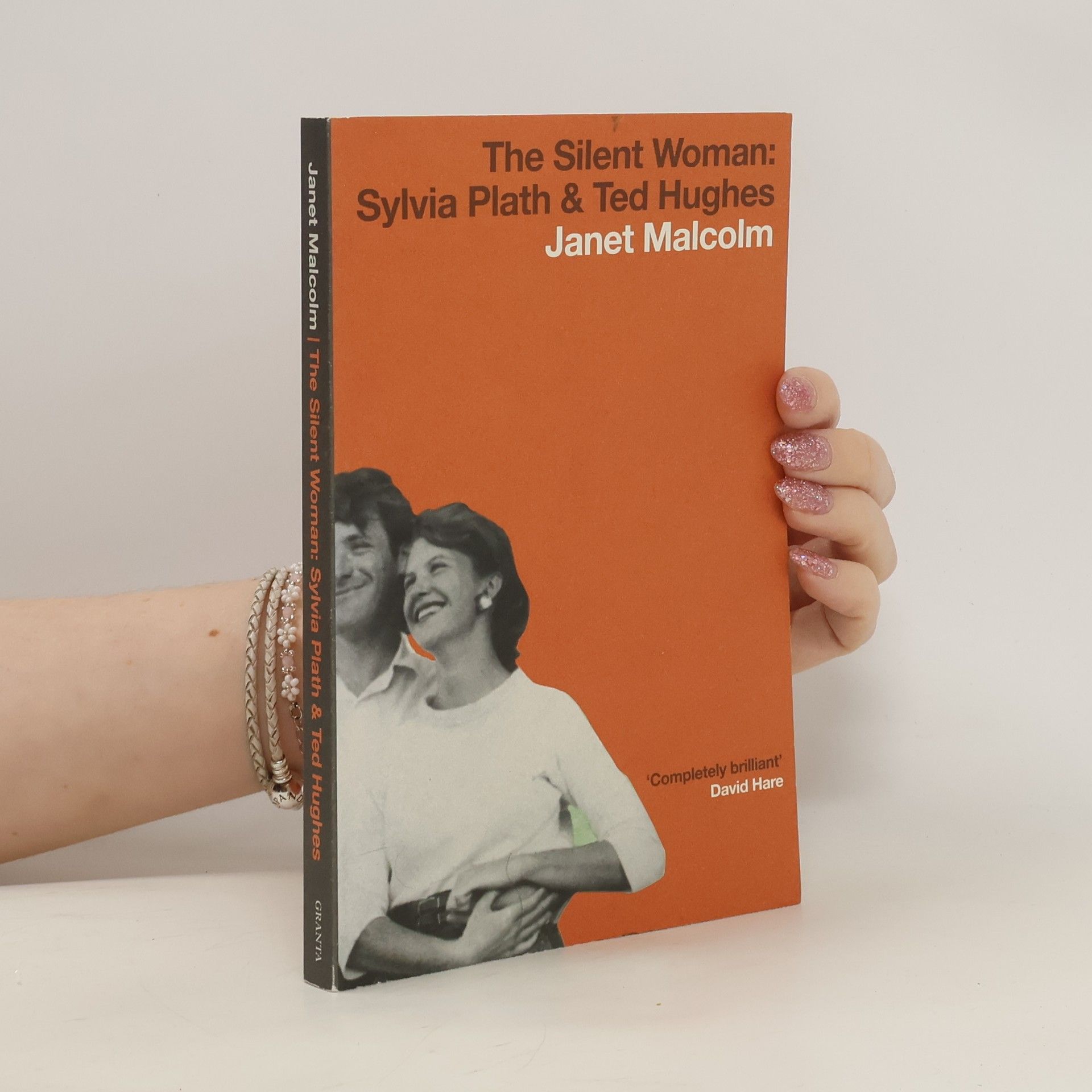Re-issue of Malcolm's revelatory biography of the tumultous union of Sylvia Plath and Ted Hughes, and the critical battle that dogs their legacies.
Janet Malcolm Livres
Janet Malcolm était une journaliste, biographe et rédactrice pour The New Yorker. Son œuvre explore les complexités de la psychologie et des relations humaines, se concentrant souvent sur des thèmes tels que la mémoire, l'identité et les récits que nous construisons sur nous-mêmes et sur les autres. Avec une prose précise et une observation perspicace, elle dévoile les motivations cachées et les ambiguïtés inhérentes au comportement humain.






"In the Freud Archives tells the story of an unlikely encounter among three men: K.R. Eissler, the venerable doyen of psychoanalysis; Jeffrey Moussaieff Masson, a flamboyant, restless forty-two-year-old Sanskrit scholar turned psychoanalyst turned virulent anti-Freudian; and Peter Swales, a mischievous thirty-five-year-old former assistant to the Rolling Stones and self-taught Freud scholar. At the center of their Oedipal drama are the Sigmund Freud Archives - founded, headed, and jealously guarded by Eissler - whose sealed treasure gleams and beckons to the community of Freud scholarship as if it were the Rhine gold."--Jacket
A provocative collection of interviews with the sublimely talented author of The Journalist and the MurdererThe legendary journalist, Janet Malcolm, opened her most famous work The Journalist and the Murderer with the “Every journalist who is not too stupid or too full of himself to notice what is going on knows that what he does is morally indefensible.”Ever since its publication in 1980, she only increased her reputation as a devastatingly sharp writer, whose eye for observation is matched only by her formal inventiveness and philosophical interrogations of the relationship between journalist and subject.Predictably, as an interview subject herself, she was an intimidating mark. In this collection, interviewers tangle with their own projections and identifications, while she often, gamely, plays along. Full of insights about her writing process, the craft of journalism, and her own analysis of her most famous works, this collection proves that Janet Malcolm is just as elusive and enlightening in conversation as she was on paper.
A fascinating exploration of psychoanlysis, its patients, practitioners and critics, from one of America's most respected and most controversial journalists.
Malcolm brings together for the first time essays published over the course of several decades (many from The New Yorker and The New York Review of Books) that reflect Malcolm's preoccupation with artists and their work.
The Purloined Clinic
- 400pages
- 14 heures de lecture
A collection of essays and profiles which examine art and literature from a psychoanalytical point of view. It includes an observation of the work of an iconoclastic family therapist, follows a former Czech dissident through post-Velvet Revolution Prague, and looks at the New York art world.
'Reading Chekhov is a literary pilgrimage, homage, travelogue, biography, literary criticism and a restrained love letter all rolled into one ... It is the work of an iridescent and sympathetic imagination' The Times
For decades, Janet Malcolm's books and dispatches for the New Yorker have poked and prodded at biographical convention, gesturing towards the artifice that underpins both public and private selves. Here, Malcolm turns her gimlet eye on her own life, examining twelve family photographs to construct a memoir from camera-caught moments, each of which pose questions of their own.She begins with the picture of a morose young girl on a train, leaving Prague at the age of five in 1939. From there we follow her to the Czech enclave of Yorkville in Manhattan, where her father, a psychiatrist and neurologist, and her mother, an attorney from a bourgeois family, traded their bohemian, Dada-inflected lives for the ambitions of middle-class America. From her early, fitful loves to evenings at the old Metropolitan Opera House to her fascination with what it might mean to be a "bad girl," Malcolm assembles a composite portrait of a New York childhood, one that never escaped the tug of Europe and the mysteries of fate and family. Later, Malcolm delves into her marriage to Gardner Botsford, the world of William Shawn's New Yorker , and the libel trial that led her to become a character in her own drama.Displaying the sharp wit and astute commentary that are Malcolmian trademarks, this brief volume develops into a memoir like no other.
In 1970 Jeffrey MacDonald was accused of murdering his pregnant wife, and the journalist Joe McGinniss decided to write a book about it. Malcolm's classic investigation sheds a fascinating light on the conflict and controversy that followed, and asks whether all journalists are, ultimately, immoral.
Forty-One False Starts: Essays on Artists and Writers
- 320pages
- 12 heures de lecture
Brings together essays published over the course of several decades (many from The New Yorker and The New York Review of Books) that reflect Janet Malcolm's preoccupation with artists and their work. Her subjects are painters, photographers, writers, and critics.